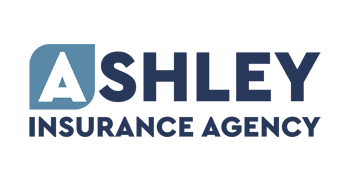Life insurance agents play a vital role in helping individuals and families secure their financial future. However, this role comes with significant ethical responsibilities. Clients place their trust in agents to provide sound advice and guide them through complex decisions.Upholding ethical standards is not only legally required but also essential for building strong, long-term relationships. Let's explore the key ethical responsibilities of a life insurance agent.
1. Putting the Client's Needs First
- Fiduciary Duty (Varies by Jurisdiction): While not all agents are legally bound by a fiduciary duty (a legal obligation to act solely in the client's best interest), the ethical principle of putting the client's needs first is paramount.
- Needs-Based Selling:Agents should prioritize understanding the client's financial situation, goals, and needs before recommending any products.
- Avoiding Conflicts of Interest: Agents must disclose any potential conflicts of interest that might influence their recommendations.
2. Providing Accurate and Honest Information
- Truthful Representation: Agents must accurately represent the features, benefits, limitations, and costs of life insurance policies.
- Avoiding Misleading Statements: Agents should never exaggerate benefits, downplay risks, or make false promises.
- Complete Disclosure: Agents must disclose all relevant information, including policy fees, surrender charges, and potential tax implications.
3. Maintaining Confidentiality
- Protecting Client Information: Agents handle sensitive personal and financial information.They have an ethical duty to protect this information and maintain strict confidentiality.
- Privacy Practices: Agents should adhere to all privacy laws and regulations.
4. Acting with Professional Competence
- Expertise and Knowledge: Agents should possess the necessary knowledge and expertise to provide competent advice.
- Continuing Education: Agents should stay updated on industry trends, regulations, and product developments through ongoing professional development.
- Recognizing Limitations: Agents should acknowledge their limitations and refer clients to other professionals (e.g., financial advisors, attorneys) when necessary.
5. Fair and Equitable Treatment
- Avoiding Discrimination: Agents must treat all clients fairly and avoid discrimination based on factors like race, gender, religion, or sexual orientation.
- Objectivity:Agents should provide objective advice and avoid pushing products based on personal gain.
6. Ethical Marketing and Advertising
- Truthful Advertising: Marketing materials and advertisements should be accurate and not misleading.
- Avoiding High-Pressure Tactics: Agents should avoid using high-pressure sales tactics or creating a sense of urgency to force a sale.
7. Compliance with Regulations
- Adhering to Laws: Agents must comply with all applicable laws and regulations governing the sale of life insurance.
- Ethical Conduct: Agents should adhere to a high standard of ethical conduct, even if not explicitly required by law.
Consequences of Unethical Behavior
Unethical behavior by a life insurance agent can lead to:
- Damage to Reputation: Loss of clients and negative reviews.
- Legal Action: Lawsuits and regulatory penalties.
- License Revocation: Loss of the ability to sell insurance.
- Erosion of Trust: Undermining the public's trust in the insurance industry.
In Conclusion
The ethical responsibilities of a life insurance agent are paramount. By prioritizing client needs, providing honest information, maintaining confidentiality, acting with competence, and adhering to regulations, agents can build trust, foster positive client relationships, and uphold the integrity of the insurance profession.

